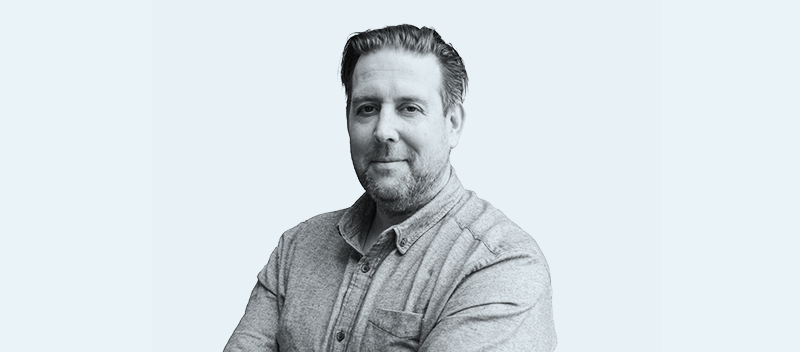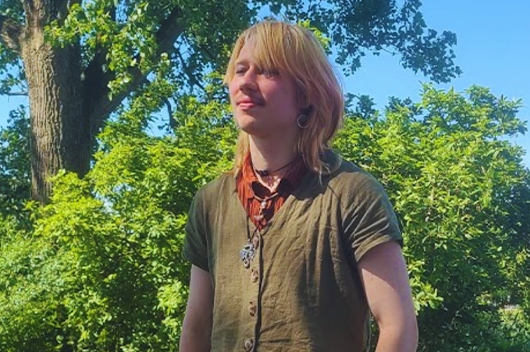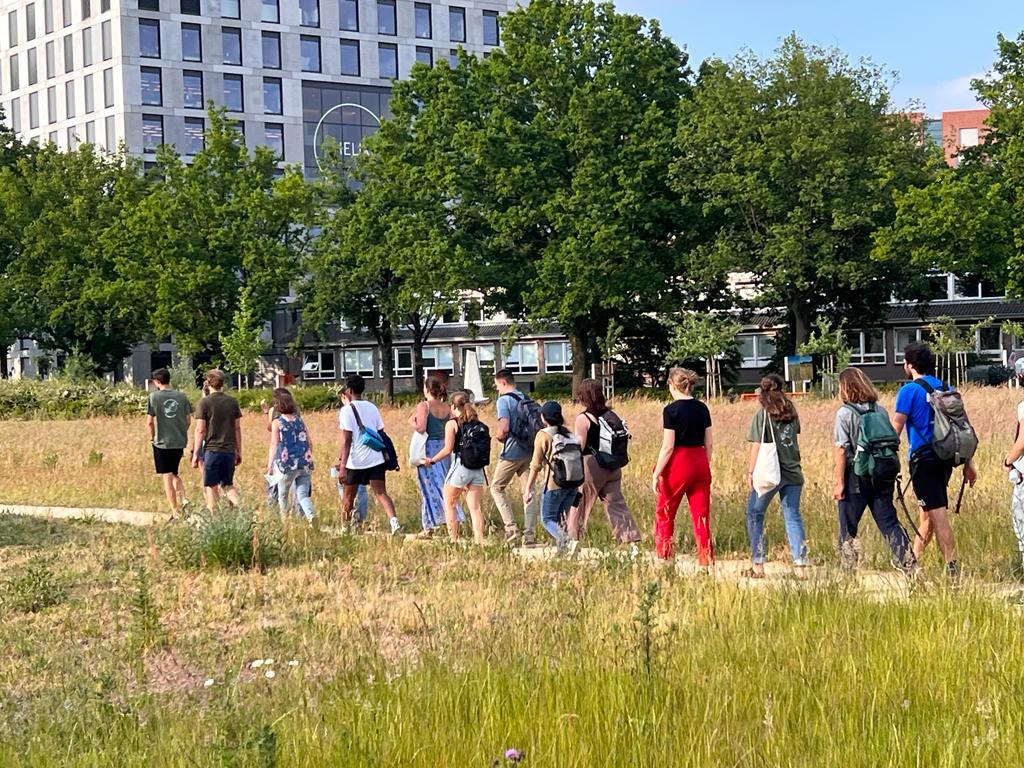What actions can and should WUR take to make its students’ and staff’s mobility more sustainable? That was the main question during the mobility debate organised by Resource in Impulse on Thursday, 22 May. There were proposals such as putting an end to international internships, the introduction of paid parking on the campus, mandatory remote working and restrictions on air travel for chair groups.
The debate follows up on a recent story in Resource on how WUR employees’ mobility has changed since the COVID pandemic. We fly less, work from home more, and more frequently choose to travel by car over travelling by bike. Sjoerd Brandsma (landscape architect and researcher) and Erna Maters (mobility policy officer) joined as panel members. Resource Editor-in-Chief Willem Andree led the debate.
Proposition 1: Introduce an air travel quota for chair groups
According to Maters, there is already less air travel than before the pandemic. ‘We are unsure what causes this.’ WUR has, however, restricted flights within Europe as of 2020. ‘Rail travel is mandatory for destinations that can be reached by train within 6 hours.’ This does not, however, explain the reduction in the number of flight hours, she argues. ‘WUR researchers’ work is highly international, and they generally don’t fly within Europe.’ There is also less air travel to destinations outside of Europe than before the pandemic, while the number of employees has increased significantly, Maters states.
‘But, mustn’t we all fly less?’ Andrée asks the audience. Yes, but balance is key, they state. ‘I am doing a PhD study on coral in Kenya. Of course, I only travel there when it is absolutely necessary, and as sustainably as possible. However, costs are also a factor.’
Brandsma refers to the metaphor of the carrot and the stick. ‘Quotas are a stick, and I’m not sure that is the best approach to reduce flying. Yes, implementing a threshold to make people think twice before booking a flight is good, but we also want to offer people the opportunity to follow their dreams. That often includes travel.’
‘I feel we still fly way too much’, someone in the audience says. ‘Consider, for example, PhD trips. My group recently travelled to Canada. I consider that irresponsible and did not join. But, if we aim to fly less, the university should make an effort.’
Proposition 2: No international internships, unless…
WUR students should do their internships in the Netherlands, unless there is a genuine reason for international travel. ‘This is a very intriguing proposition’, Brandsma states. ‘Because you could reverse the argument and say: international internships are mandatory unless you have a valid reason not to go. Our university aims to create impact, which requires our students to be in the field. Rather than calling for less, we should, perhaps, call for more! What sustainability impact do our international internships have?’
Someone in the audience argues that students must develop themselves and expand their knowledge. ‘International travel increases the variety of their knowledge, thoughts and experiences. I don’t think we should restrict that.’ And, someone else adds, international internships can take place within Europe. ‘We must consider all the options we have that do not include air travel. I did my internship in Switzerland and travelled there by train all the time. That, too, was a valuable experience.’
Proposition 3: Paid parking on the campus
All of the parking spots on campus are regularly occupied, Maters states. ‘Especially on Tuesdays and Thursdays, and when it rains. We know this because we count the number of cars.’ Brandsma: ‘We count cars, but we don’t count the number of people with a smile on their face.’ He wants to divert from the standard that everything revolves around the drivers. ‘Eighty per cent of the roads are designed for cars. We all grew up with this vehicle monopoly. I have children, and I fear for their safety when they play outside in the street. Perhaps the campus could be transformed into a low-traffic residential area. A low-traffic campus. We must dare to dream big.’
Several ideas are discussed. ‘If we decide we want a greener campus with more room to walk and enjoy nature, we must then consider how we can make that happen, ’ says someone in the audience. ‘Perhaps we could move parking spaces towards the edges of the campus? Or we could say that only those who live further than 30 kilometres from the campus are permitted to come by car? That means making tough choices. Paid parking could be one such choice.’
Maters circles back to the present. ‘I don’t think paid parking is the solution. But we could critically examine the number of parking spots we currently have and who is permitted to use them.’
Proposition 4: working from home 50 per cent of the time
Everyone works from home more since the COVID-19 crisis, says Maters. ‘But not everyone has this option. Some people work in a lab or take care of animals and should be exempted.’ Moreover, we should critically examine who comes to the campus when. ‘It is not very efficient if everyone shows up on Tuesdays and Thursdays.’
And, is mandatory working from home even sustainable, someone in the audience ponders. ‘If you normalise working from home, people will look for larger homes, as working at the kitchen table is not great. And, can you expect PhD students to live, eat, sleep and work in their 25 square metre studios? Or should we pay them more so they can afford larger homes?’
Landscape architect Brandsma diverts slightly from this proposition. He proposes to design the campus to meet the needs of those who work there. ‘What does your ideal workplace look like? Sometimes, it’s a quiet spot in the woods, sometimes it’s a noisy café. Such spots are currently unavailable at WUR, but perhaps, rather than considering how we can facilitate drivers, we could consider how to facilitate people. That would enable us to transform the campus into a more appealing, richer environment. That makes us all healthier.’ He proposes to ask drivers who are lined up in traffic jams on the Mansholtlaan what their ideal workspace might look like. ‘Thus, traffic nuisance may become a source of inspiration.’
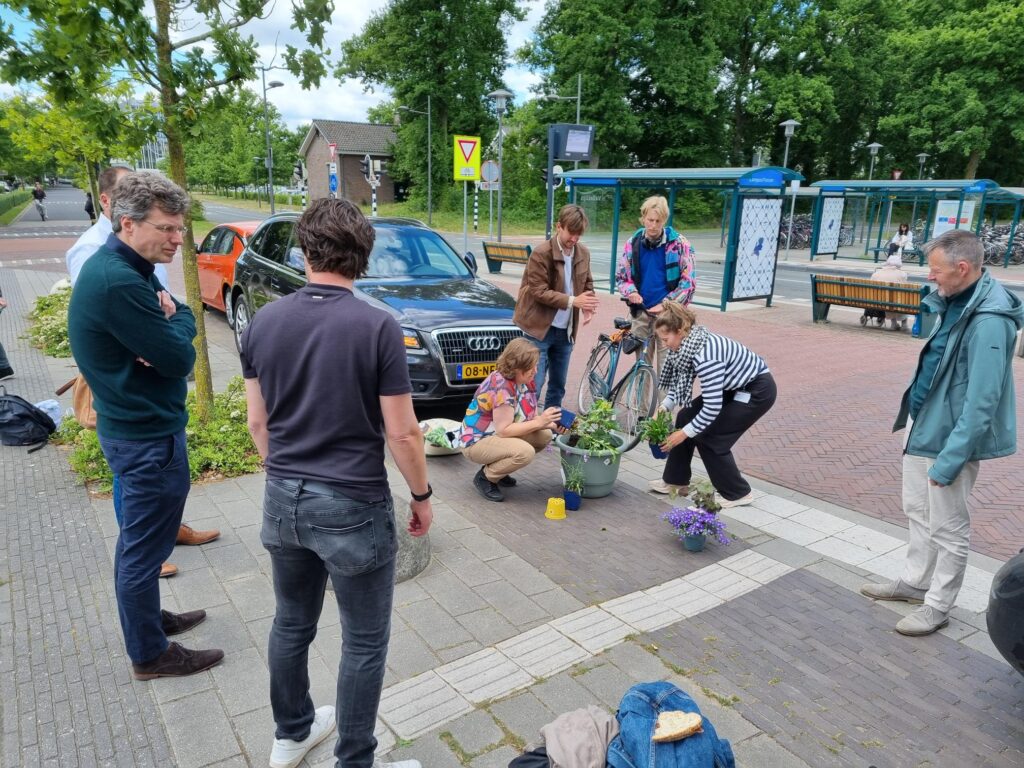
After the debate, Brandsma invites the audience to help make a small beginning with improving the campus. ‘At Campus Plaza, cars can park at a crossing for the visually impaired. I brought flowers, a pot and soil. You can help me place a flowerpot so that the blind can cross the road without bumping into a car.’

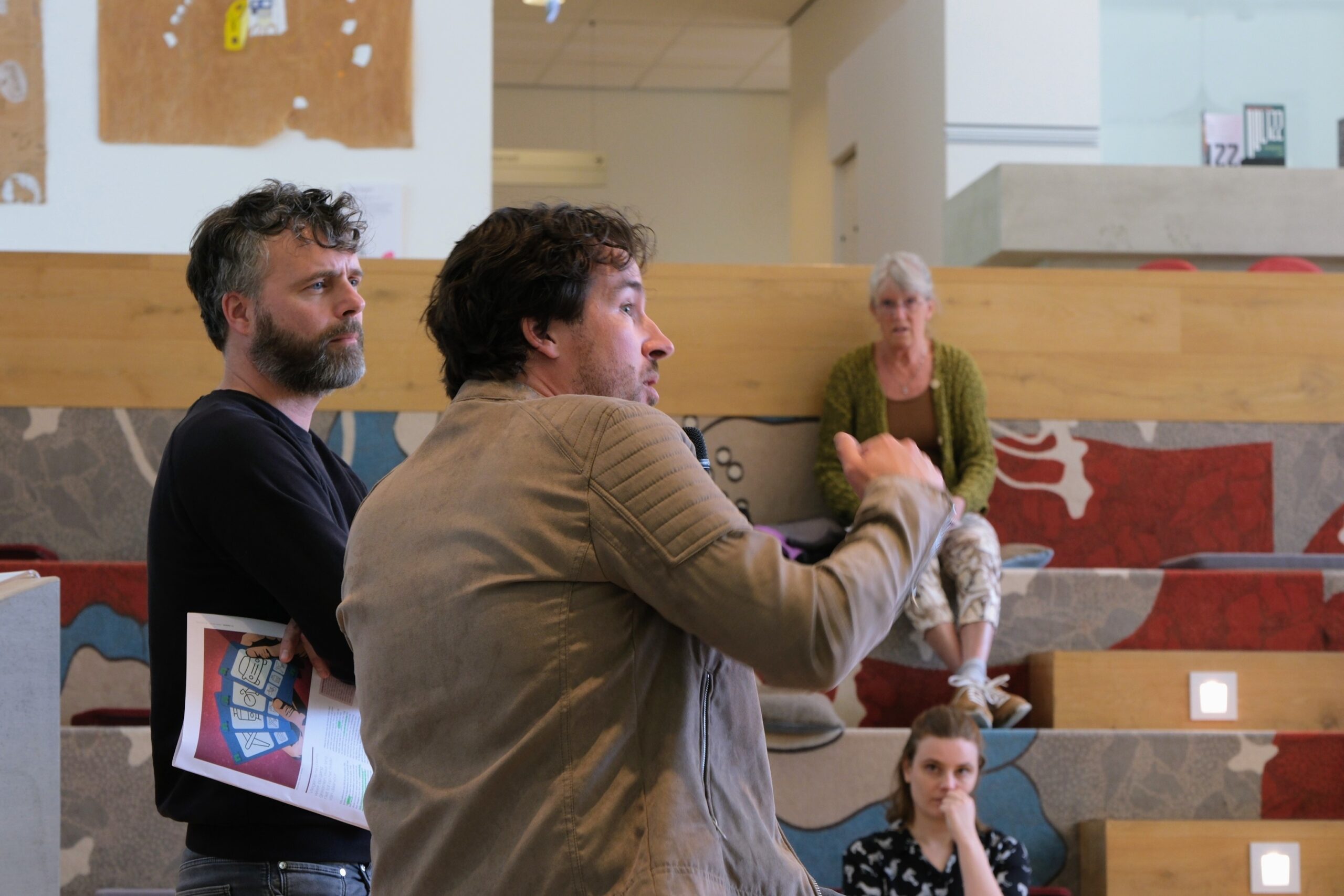 Resource Editor-in-Chief Willem Andrée (left) facilitates the debate. The speaker is Sjoerd Brandsma. Photo Guy Ackermans
Resource Editor-in-Chief Willem Andrée (left) facilitates the debate. The speaker is Sjoerd Brandsma. Photo Guy Ackermans 